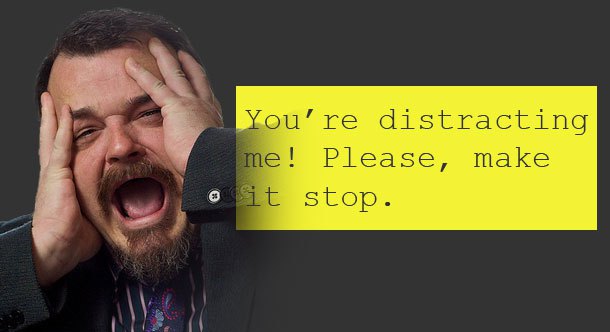
by Marvin Kane | Jan 10, 2018 | Business, Sales and Marketing, SEO, Social Media, Uncategorized
Would you like to see a thousand visitors a day to your website? Of course, you would. But what if you find out that your main competitor only gets around 200 visits a day but is selling 5 times more widgets than you are.
It’s About Conversion
It’s the classic traffic versus conversion conundrum. If your goal is simply to get more eyeballs on your website then the 1000 visits a day site is clearly more successful than the 200 visits a day site. But if your goal is to sell more widgets, get more newsletter signups, to get people to download your ebook, to fill out your contact form, make an appointment ….
Watch the full video.

by Marvin Kane | Dec 19, 2017 | SEO
Google Analytics is a free tool provided by Google that allows us to collect a wide range of data about how users interact with our website. When you create an analytics account, Google will provide you with a snippet of code that gets inserted into the pages of your website. Once that is done, Google begins tracking user behavior which you can then look at by logging into you analytics account.
Why Google Analytics Important?
To answer this question, you must ask another question first – what is the goal of your website? Without knowing the answer to that question then any data provided by analytics is meaningless – it’s like the old Lewis Carroll quote – “if you don’t know where you are going, any road will get you there.”
Watch the Full Video

by Marvin Kane | Dec 14, 2017 | Business, SEO
So why are backlinks important? Because Google views them as a vote for your website. The thinking is: if a reputable, authoritative website considers your website worthy of linking to it, then your website must be of high quality too. Makes sense right?
So how do you get those valuable links? Well that’s a big topic – in short, you have to earn them. Here is what you should NEVER do. Buy links. Google can spot paid for links and will penalize you for it.
Watch the full video.

by Marvin Kane | Nov 27, 2017 | SEO
What about Reviews? Are they important? Will reviews help my visibility? Etc.
Yes, reviews are important. You see, local search is based on three factors, proximity, relevance and prominence. There are dozens of industry specific review sites – for lawyers, doctors, craftsmen, restaurants, hotels – there’s Yelp, Trip Advisor, Angies’ List, Zagats and many more.
Google Reviews
- The Local Pack – people will click on one of top three results. Which one is most likely to be clicked on? The one with the most reviews.
- How do I get reviews? – ask and make it easy for people to write a review.
- Try to get reviews that talk about something specific you did for a customer.
- Don’t consider a negative review a bad thing – it’s your opportunity to engage with an unhappy customer and try to make it right.
Watch the full video.

by Marvin Kane | Jun 13, 2017 | Business, SEO
I‘m frequently asked some variation of the following question: “...how can you do effective search engine optimization on my website if you don’t know my business?” This question reflects a legitimate concern. I’m going to give you the answer. I use a very old technique that has, for reasons I don’t understand, fallen out of fashion. Wait for it … ready? I ask questions. Lots of questions. I listen to the answers. I take notes. When people begin to freely speak about their business it isn’t long before you hear and see the passion. But it’s more than just asking questions. It’s asking the right ones. Like what makes you different than your competitors? I know what you’re thinking. Doesn’t every web designer/SEO consultant ask that question? I would hope so. But here’s the thing. The answer, I mean the real answer, often doesn’t come as a direct result of asking the question. It comes later when defenses are down and the tension has left the room. I look for eyes to light up and words to flow freely. This doesn’t always happen. But I always expect it to. And when it does I know I found the answer I’m looking for and the key to making their website stand out. I’ve found the why.
The Deep Dive
It’s also about intangibles. I call this process of asking questions and immersing myself in my clients’ business the deep dive … and my commitment to this process is how this nice Jewish boy from Brooklyn found himself in church one Sunday morning. You see I was hired by a local church to redesign their website – to bring it into the 21st Century (their term not mine). We had several meetings where I asked lots of questions and took copious notes. That’s my normal process. I heard words like welcoming, non-judgmental, accepting. I’m pretty sure that most churches these days would use the same words to describe themselves. I’m also pretty sure that the description is not always accurate. Toward the end of the meeting the Pastor turned to me and nonchalantly said “why don’t you come to services next Sunday. We start at 10.” I didn’t hesitate. “Great idea,” I answered.
Sing Hallelujah
Now I’m used to going to Sabbath services at my local synagogue where 10am means 10ish and those who show up usually err on the side of ish. I couldn’t assume that church goers had the same lax interpretation of time I was used to so I dispensed with the ish and arrived at 10 sharp. It was a beautiful Spring day. The Pastor, who was stationed outside as parishioners were arriving, seemed genuinely happy to see me. He seemed happy to see everyone. In fact, everyone was happy to see everyone else.
Conclusion number one: this church really was welcoming.
Inside the choir was singing. I love singing. The service this morning featured a sermon delivered by a guest pastor from Boston. Thoroughly inspiring. I was introduced to a man who had moved to the area from Texas and chose this church because he and his husband were – here is that word again – welcomed.
Conclusion number two: this church really was accepting.
After the service, we moved into the church meeting hall for coffee and pastries – and more singing. I took the liberty of wandering off by myself. I do this sometimes because it gives me the opportunity to pick up tidbits of information I can use to craft a powerful message for a client website.
The Takeaway
Back in my office on Monday I organized all the information from my deep dive and forwarded the list to the church’s web committee. None of the ideas on the list had been discussed during any of our meetings. The committee was thrilled. So was I. So was the Pastor who kept saying, “what a great idea.” The truth is they were things I thought of during my visit. See what I mean about the deep dive?
And Now Back to You
What do you think of this deep dive idea? Did the company you worked with to build your website or do an SEO campaign take the extra step? If you’re in the middle of the process now it’s not too late to ask them to. I’d like to know your thoughts.
Photo courtesy of Alexander Röck

by Marvin Kane | Jul 13, 2014 | Business, Design, Sales and Marketing, SEO
What’s The Goal of Your Website?
This is the first question I ask my clients. It surprises me how difficult it seems to be to get an answer. It’s pretty hard to build a website if the goal of the site isn’t clear. But one thing I hear all the time is something like this:
“I’d like a rotating slideshow on the homepage.”
As a designer I have to admit that these slide shows are visually appealing. But even though they are enormously popular, I advise my clients against using them. Why? Because unless your website is strictly informational, chances are you’re using it to sell something – a product, a service or an idea. That rotating homepage slideshow that is currently in vogue may actually be making it harder for potential customers and clients to buy what you’re selling.
It’s About Conversion, Not Page Rank
Your analytics reports are telling you that lots of people are visiting your site. Good. When you do a Google search for your business, you’re at the top of the SERP (Search Engine Results Page). Good. You’re not gaining any new customers. Bad! So what’s going on here? If you’re focusing on attaining the number one spot on a Google search then you’re focusing on the wrong thing. Wouldn’t you rather have a hundred new visitors to your site who all end up buying from you than one thousand new visitors who do nothing? Pretty obvious right? The objective is to convert your visitors to customers. It’s time to face the ugly truth. The lovely rotating slideshow that is occupying your homepage’s most coveted real estate is turning potential buyers away.
Engage, Don’t Distract
In his regular column on Design, Usability and Conversion, Tim Ash of Marketing Land sites the following:
The whole idea behind image sliders is that a message or image is displayed for a brief while — maybe a few seconds – and then is replaced by another message. But this type of stopping and starting pattern is the most compelling form of movement, because of our evolutionary need to be aware of hidden dangers lurking nearby.
Simply put, the human brain is hard-wired to notice the onset of motion, which makes rotating banners especially distracting. We literally cannot tune them out.
Ash further states:
So, while the movement of the banner may attract the attention of the subconscious, the conscious brain works hard to ignore it.
It May be Time to Break the Habit
Does it really make sense to put your most important information, your key calls-to-action, your value proposition, the “why” of your business in a format that research tells us is likely to be ignored? I like the homepage slideshow just as much as the next guy. I think they look cool and are a good way to attract attention – for a few seconds. That’s how long it’s going to take for your visitors to realize that just before they’ve absorbed the information embedded in the first image, the next one pops onto the screen. The next step is user frustration followed by a quick exit. So unless the sole purpose of your website is to look cool, I would suggest rethinking that rotating homepage slideshow.
But Having Said That …
I should say that even though I advise my clients against using the ubiquitous homepage slideshow, if they insist I will use it anyway. My job is go give them the information they need to make good choices. It’s still their decision.
Now Back to You
Are you hooked on the homepage slideshow? Does your website use one? If so, can you tell how it is effecting your business goals? Does anything I’ve said here make sense?






